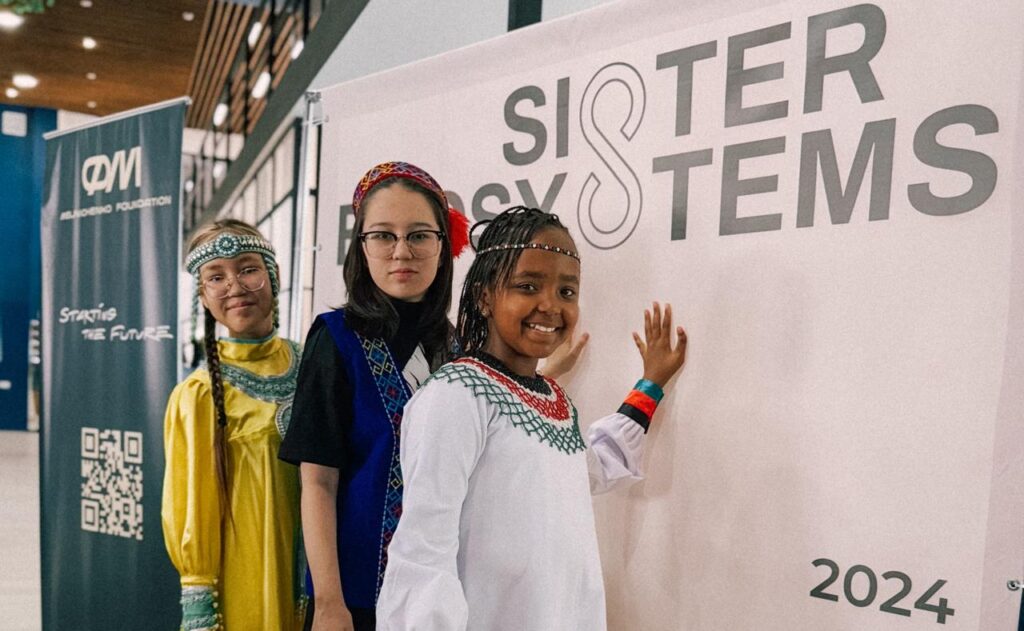Read 3 minutes
by Nick Mudimba
CGTN Africa Reporter
Despite being only 11 years old, Karen Wanjiru Kimani is deeply involved in environmental conservation. She started an organization known as the Karen Forte Environmental Conservation Foundation, which focuses on planting trees to conserve the environment, providing clean water in Kenyan schools, and educating youth about the environment. Her work has made her a popular guest at various significant climate meetings worldwide, such as COP27 and COP28, thereby becoming the youngest to have done so.
“I was the youngest delegate to attend COP27 in Egypt at 9 years old and addressed the leaders including my president, William Ruto,” she says. As a conservationist and an environmental ambassador, I take SDG13 (Sustainable Development Goal) very seriously.”

Kimani’s role in the Sister Ecosystems initiative shows Kenya is very committed to environmental protection since she heads teams restoring and preserving Kenya’s forests. She plants trees, brings awareness to sustainable water resources, and aspires that more and more young people from Kenya and elsewhere will be influenced by her work to join the fight against climate change.
Global Collaboration for Local Impact
Kimani, along with fellow eco-activists, Yana Gorokhova from Russia and Jasmina Jumaniyazova from Uzbekistan, presented the ‘Sister Ecosystems’ project during the 5th Northern Forum on Climate Change and Permafrost Degradation. The forum, in conjunction with the Melnichenko Foundation, helps develop educational infrastructure projects in Russia and enables science-based sustainable development. Tatiana Zhuravleva, Director of the Melnichenko Foundation says the forum is also committed to rescuing destroyed ecosystems and thought Kimani’s input was vital.
“We want the sister ecosystem initiative to stimulate horizontal connections among young eco-activists all over the world, united by a love for the Earth,” Zhuravleva says. We can bridge the gaps that divide the international environmental community and stand together for immediate solutions that are needed for climate change.”
The partnership of the young leaders serves mostly in sending a very important message about putting faith in bonding in light of the growing global environmental threat. Still, each of the activists presses on with their individual experiences in heading projects that help in taking care of the environment, proving that the smallest local action may be the most significant globally.
As symbolic as the partnership may be with Russia’s permafrost and Uzbekistan’s Aral Sea, Kimani is optimistic that this will stir similar efforts, first in Kenya, and later in other African countries. By linking these ecosystems worldwide, she hopes that the young people of various countries can learn through comparisons of each other’s experiences and find creative ways to protect their natural resources.
Focused on reforestation

More importantly for Kimani, tree planting is a major focus area of her foundation. She took it upon herself to work on reforestation in Kenya, something the state needs badly since it is being threatened by deforestation and desertification. In addition, her actions aimed at providing schools with clean water fall well within the general situation of Kenya which urgently requires sustainability in managing water resources due to increased signals of drought brought by climate change.

Kenyan forests are an important part of the ecosystem within the country, ranging from a home for various wild animals to natural carbon sinks critical in regulating climate change. Contribution from this sector is also not negligible to the country’s GDP. However, they are increasingly threatened by illegal logging and land conversion, among other climate-related challenges like drought. Kimani’s leadership in the Sister Ecosystems initiative was meant to be a wake-up call regarding the dire need for reforestation and forest conservation in Kenya.
“Together with the 400 members of my organization, we have been taking action against climate change. We have not only been planting, but also growing trees together. Trees also help to increase rainfall which improves our food production therefore addressing the Sustainable Development Goal of reducing hunger. We are also working to help our country achieve her 2030 goal of growing 15 billion trees by 2030”.
